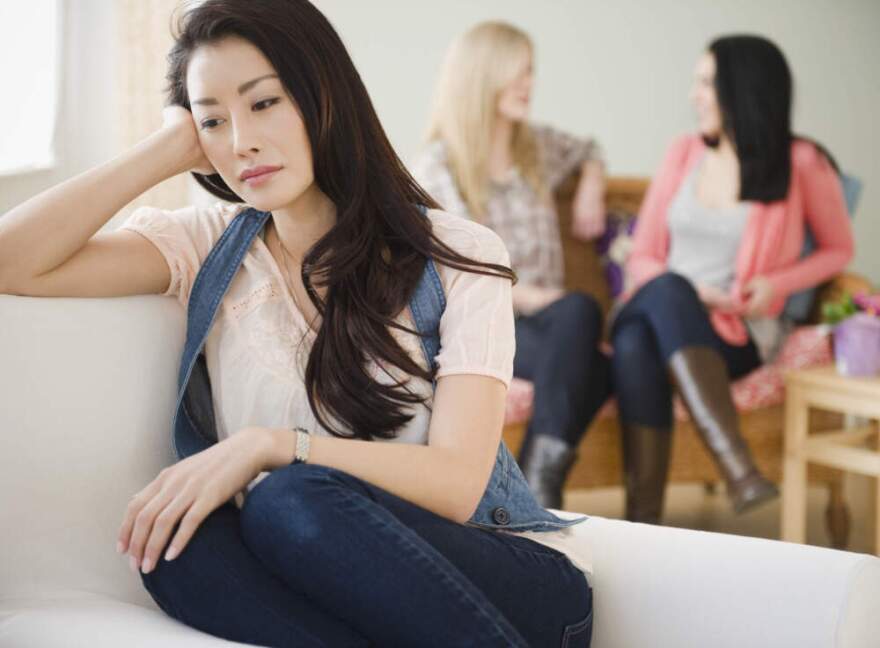A lot of us get nervous in social situations, such as going on a first date, dinner with friends or speaking in front of a group of people.
But at what point do nerves turn into full-blown social anxiety?
“People who have social phobia or social anxiety really have this intense and persistent fear of being judged, embarrassed, or rejected in social or performance situations,” said Kati Morton, a licensed therapist based in Austin, Texas, and author of the upcoming book, “Why Do I Keep Doing This? Unlearn the Habits Keeping You Stuck and Unhappy.”
“They essentially can’t even focus, cannot have conversations. They’re so concerned about what other people think,” she said. “They kind of get caught up in their own thoughts and will avoid the situations altogether.”
5 questions with Kati Morton
What causes social anxiety?
“It can come from a lot of different places. For most of my patients and people I’ve spoken with over the years, it comes from childhood. A lot of times, we can feel judged when we’re younger. Say we were bullied, let’s say we were left out. Let’s say our confidence is really low, you know, maybe our parents weren’t super supportive. I mean, there’s really a ton of different places anxiety can come from — each person’s is individual — but I do think it’s important to recognize that anxiety is the most common mental illness in the U.S., and therefore I wouldn’t be surprised if a lot of people do have social anxiety.”
What are the physical symptoms?
“A lot of people will say that the physical manifestations of that fear is a racing heart, sweaty palms, like butterflies in the stomach. It can feel like we’re gonna pass out. A lot of people say they almost feel like they’re drowning and dying at the same time. It also can cause digestive issues, which you can imagine, all of these symptoms can make the social anxiety feel even more uncomfortable.”
What can you do if you feel anxious in a social setting?
“The best thing you can do in the moment is to step away. That’s a great opportunity to say, ‘Oh, I’m just going to go to the bathroom really quick. I’ll be out in just a few minutes.’ [When] you go in the bathroom, you can do a full body shake, which I know sounds kind of strange, but when we feel queued up like that, when we feel anxious, that gives our nervous system a release, and if we don’t take an action, that’s when we can have things like a panic attack or we can start to have more of those symptoms like I feel like I’m going to faint or I’m gonna throw up or any of those. And so if you shake, you give your nervous system a release for that energy. So that’s always my number one.
“My second is to do some deep breathing, you know, I love, I call it four by four breathing or box breathing, breathe in for four [seconds], hold it for four, breathe out for four, do it four times. Easy. You can do it even if you can’t step away. People might not even realize that you’re doing it. If you don’t have makeup on, you can splash cold water in your face. Those are [for] the moment, save you and pull you out of that anxious spiral.”
How can you stop replaying situations in your head or reframe your thinking?
“So I want you to think of a memory that feels really good, and I want you to pretend you’re telling me all about it. Tell me about that one vacation you took to Hawaii, or tell me about that wonderful day you had off where you just had nothing to do and you walked around town. Tell me about it. What do you smell? Use all your senses. What are you tasting? And go through that memory in as much detail for as long as you can, and I find most of my patients will say, ‘I didn’t even get all the way through the memory and I fell asleep.’”
Should you ever avoid social situations altogether?
“I don’t for the most part because the way that social anxiety works in our brain and body is that as we kind of retract, like say no and stay home, the more we prove to our system that we can’t handle it. And so I always want to challenge people to try anyways, like do some tools, like dunk your face, shake out, have a ritual, get yourself prepped and do it. But I also want to hold space for the fact that some people might feel almost into a panic attack already, just sitting in their car, waiting to drive to go somewhere. And if you find yourself that heightened, it might be better you don’t [go]. I still want you to do all the things we talked about like the shakeouts and talking yourself down, stopping the rumination, doing all of that, but that day just might not be your day. So if you feel like your resilience is low and you essentially cannot weather the storm of a social event, it’s OK to not go. I just don’t want that to become a pattern that we get caught in, because like I said, it only reinforces the social anxiety, and that’s not what we’re here to do.”
This interview was edited for clarity.
____
Samantha Raphelson produced and edited this interview for broadcast with Catherine Welch. Raphelson also adapted it for the web.
This article was originally published on WBUR.org.
Copyright 2025 WBUR

